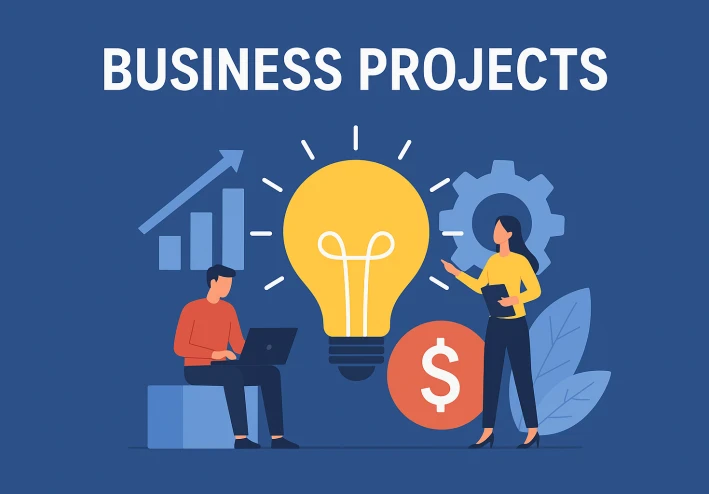
Business Projects: Key Steps to Build and Grow a Profitable Venture
Business Projects: From Idea to Success in the Modern Economy
In today’s fast-changing market, business projects are more than just a way to earn income—they are opportunities to innovate, create value, and build lasting impact. Whether you are planning a small business, a startup, or a large-scale enterprise, success depends on careful planning, strategic execution, and adapting to market needs.
1. Choosing the Right Business Idea
Every successful business project starts with a strong idea. Look for profitable business ideas that solve a real problem or meet an existing demand. Research current market trends to identify high-demand products or services. Popular examples include e-commerce businesses, digital marketing services, consulting firms, and technology startups. Choosing an idea you are passionate about increases motivation and resilience during challenges.
2. Conducting Market Research
Before launching, thorough market research is essential. Study your target audience, analyze competitors, and identify your unique selling point (USP). Use online tools, surveys, and industry reports to gather insights. Understanding consumer behavior helps you position your business project effectively and avoid costly mistakes.
3. Creating a Solid Business Plan
A business plan acts as your roadmap to success. It should outline your objectives, target market, marketing strategy, financial projections, and growth plan. A well-structured plan not only guides your operations but also attracts investors and partners. Include realistic timelines, budget forecasts, and measurable goals to track progress.
4. Funding Your Business Project
Securing funding is one of the most critical steps. Options include personal savings, bank loans, venture capital, crowdfunding, and government grants. Evaluate the pros and cons of each funding method to choose what best fits your project’s scale and industry. For small businesses, starting with low-cost operations can reduce risk while testing the market.
5. Marketing and Brand Building
A strong marketing strategy is vital for attracting customers and building loyalty. Leverage digital marketing tools such as search engine optimization (SEO), social media campaigns, content marketing, and email newsletters. Consistent branding—logo, colors, tone of voice—helps create a professional image and sets your business project apart from competitors.
6. Managing Operations Efficiently
Efficient business management ensures smooth daily operations. Implement systems for inventory control, customer relationship management (CRM), and financial tracking. For startups and small enterprises, using affordable digital tools can save time and money while maintaining high-quality service.
7. Monitoring Performance and Adapting
Success in business requires ongoing evaluation. Use key performance indicators (KPIs) like sales growth, customer retention rate, and website traffic to measure success. Be ready to adapt your strategy when market trends or customer preferences change. Flexibility is often the difference between growth and decline.
8. Building Strong Relationships
Networking is a powerful asset for any business project. Build relationships with suppliers, customers, industry peers, and mentors. Partnerships and collaborations can open new opportunities and strengthen your market position.
Conclusion:
Starting a business project is an exciting journey filled with opportunities and challenges. By choosing the right idea, conducting market research, creating a strong business plan, securing funding, and using effective marketing strategies, you can build a successful and profitable business in today’s competitive economy. With determination, adaptability, and a focus on delivering value, your project can thrive and grow for years to come.





























